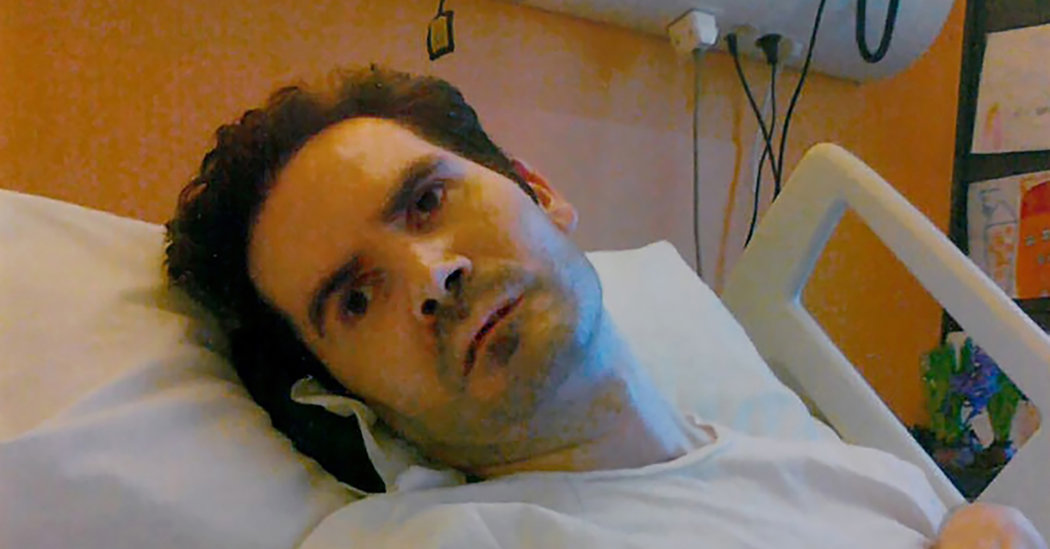PARIS — A 42-year-old Frenchman who has spent more than a decade in a vegetative state was taken off life support on Monday, according to one of his parents’ lawyers, after years of court disputes that divided the patient’s family and put him at the center of a right-to-die debate in France.
On Monday, doctors at a hospital in the northeastern city of Reims stopped artificially feeding and hydrating the man, Vincent Lambert, and began administering strong doses of sedation. Mr. Lambert, a nurse, was left in a vegetative state after a car accident in 2008.
While euthanasia is illegal in France, the law allows for “passive euthanasia,” in which terminally ill or injured patients with no chances of recovery are taken off life support and put into heavy sedation until their death, after consultation with their families.
The decision to remove Mr. Lambert from life support was announced this month after a series of rulings, despite staunch opposition from his parents. Mr. Lambert’s wife, Rachel Lambert, has maintained that her husband would not have wanted to be kept alive in a vegetative state, despite the fact that he did not leave clear written instructions to that effect. The dispute has split other members of Mr. Lambert’s family.
Jean Paillot, the lawyer for Mr. Lambert’s parents, called the doctors’ decision to remove life support “scandalous.”
“Vincent is neither sick nor at the end of his life, he is disabled,” Mr. Paillot told the news outlet BFM TV on Monday.
A vegetative state can be defined as a condition that occurs when the part of the brain that controls thought and behavior no longer works, but vital functions such as the sleep cycle, body temperature control, breathing, blood pressure and others persist. People in a vegetative state can sometimes open their eyes and have basic reflexes, but they do not have a meaningful response to stimulation or display any sign of experiencing emotions.
Mr. Paillot said that he would mount new legal challenges on Monday to reinstate Mr. Lambert’s life support, but it was unclear whether that move would prove successful, as several courts have already approved the procedure.
Doctors, in consultation with Mr. Lambert’s wife, first decided to take him off life support in 2013, after years of physical therapy and care failed to improve his condition. But Mr. Lambert’s parents, both devout Roman Catholics, opposed the decision and obtained a court ruling that reversed the decision.
Years of legal battles followed. The Council of State, the highest administrative court in France; and the European Court of Human Rights both ruled last month that Mr. Lambert could be taken off life support.
Mr. Lambert’s parents have also referred their son’s case to the Committee on the Rights of Persons with Disabilities, a United Nations-affiliated body. The committee called on France to delay the decision to halt Mr. Lambert’s life support while it investigated. But Agnès Buzyn, the French health minister, has said that the committee’s decisions are not binding and that all legal appeals have been exhausted.
Mr. Lambert’s case is reminiscent of other high profile disputes over a person’s right to live or die. The family of Terri Schiavo, a Florida woman who spent 15 years in a persistent vegetative state before her feeding tube was removed in 2005, were similarly divided. Her case went on to stoke debate in the United States and beyond.
In a landmark 1976 ruling, the New Jersey Supreme Court found that the father of Karen Ann Quinlan had the right to decide to forgo life-sustaining treatment on her behalf. Ms. Quinlan died in 1985, a decade after she lapsed into unconsciousness.
Follow Aurelien Breeden on Twitter: @aurelienbrd.
